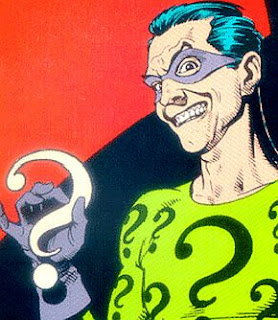Johannes Göransson blogs about
poetry and futurity, along with poets’ sometimes ugly efforts to vault themselves into the syllabi that distribute poems forward into time. He lays C.K. Williams’s recent swipe at the Language poets and their anxiety to be recognized next to Dana Levin’s broad dismissal of “younger poets since the late 1990s” as flashy confectioners, sweet on the palate but short on lasting flavor. Both sound dorkily Victorian:
Williams: “I don't like to speak badly of anyone but I can’t bring to mind a single poem by any of the core group of language poets that’s stayed with me more than five minutes after I read it.” Levin: “… such books promise sensational tastes that in the end amount to light confections [because their] lingual beauty doesn’t linger long after turning the page.” I’m apt to be softer on the future than Johannes. In an art that so often gets so little attention in its time—whose “classics” (say,
Harmonium, or
Alcools, or
Flowers of Evil, or the entire output of Emily Dickinson) can move less than 200 copies, if any, in their day—it’s natural for the future to take on more weight than it does for filmmakers or novelists or painters or musicians, where the chance of reward in the present diffuses some of the panic over posterity. The gap between present-day neglect and the fantasy of future readers is less a product of poets’ vanity I think than a structural condition of the business.
What I can’t get down with though is pegging a poem’s value to its ability to stay in the memory, which is one step away from saying it ought to be memorized. Here, let’s take that last step:
“I wonder about some poets I enjoy reading and much admire: why do their poems not lodge in my mind? Between readings, they sink into the vagueness of their reputation. I have read most of John Ashbery’s poetry and reviewed three or four of his books, but I couldn’t recite two consecutive lines of his work. When I go back to “Self-Portrait in a Convex Mirror,” I assent to a cultivated voice as it leads me through the lines, but when I’ve finished reading it, nothing of the voice stays with me but a fading echo. If it is a superb poem—as I think it is—its quality is consistent with a culture that reads with the eye and keeps the ear idle.”
—Denis Donoghue, Words Alone: The Poet T.S. Eliot
I agree with what a lot of what Donoghue says here—my experience of reading Ashbery isn’t so different from what he describes. But the “fading echo” is a deliberate (and virtuoso) effect: Ashbery couldn’t deliver the experience of time he means to convey without the “cultivated voice” standing slightly above or apart from the pressures of memory, solipsistic melancholy, and trivia bearing up the skirts of the sublime if the language made the same demands on our attention that “consecutively memorable” lines do. More significantly, this isn’t a private or mannered effect, it’s “consistent with a culture that ___________ .” Fill in that blank however you like: once you’ve conceded a poetry that’s “consistent with” its time and place, you’ve opened up the door to things like poetics, world events, social structures, and poetic careers whose value may be separate from (and, for future readers, potentially more interesting than) individual poems.
The truth is, none of us know what the future’s going to need from us. For readers still unborn, poetry may be, like Levin’s, a type of fine dining, where connoisseurs recall the exquisite meals they’ve enjoyed. Or like Williams’s, where you strive in your off-line hours to “bring to mind” great poems as a form of sentimental exercise. Donoghue’s read a ton of poetry in his literary career: maybe for professional readers like that, it’s the stuff that still sticks in your head at retirement that’s great, or that you read (like Donoghue did Eliot) as your gateway drug to poetry in your twenties, and nothing after was the same. Right now, my money’s on a poetry future of geeky comic book collector-types with tenure: brainy, overworked, under-appreciated, and spending way too much time on the web.












